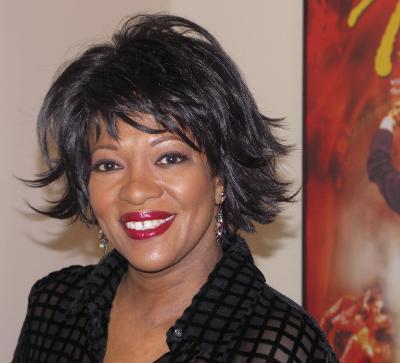George Polgreen Bridgetower, a biracial violin prodigy who studied under Haydn and performed with Beethoven, and to whom Beethoven’s Kreutzer Sonata was originally dedicated, is largely forgotten today.
Former U.S. Poet Laureate and Commonwealth Professor of English at the University of Virginia Rita Dove blends history and fiction to present the fascinating story of this talented young man in her book Sonata Mulattica.
Dove will read from and discuss this narrative – subtitled “A Life in Five Movements and a Short Play” – on February 5 at 7 p.m. Sponsored by the UM College of Arts & Sciences Center for the Humanities, the event will take place in Storer Auditorium (5250 University Drive Coral Gables, FL, 33146).
 |
Dove explains, “Serendipity and curiosity played a huge role in the origins of this book. One evening my husband and I decided to relax by watching a movie – Immortal Beloved, a biopic about Beethoven. In one scene, which takes place in Vienna, Beethoven pushes his way through a group of musicians trying to curry his favor, and one of these musicians is a young black man. I nearly fell off the sofa! My book sprouted from that moment: I simply wanted to know more about this black musical prodigy.”
A gifted violin virtuoso who was already dazzling audiences at age 10, Bridgetower was the son of an Afro-Caribbean father and a Polish-German mother. His talent so inspired Beethoven that the composer and pianist dedicated his most intricate sonata to the young musician. The two men performed the work together in 1803 in Vienna – but by the time it was published two years later, it had been renamed, allegedly due to a rivalry over a woman. Bridgetower was relegated to the footnotes.
Dove said, “Google was in its infancy in those days, so I only found a brief entry; but there’s nothing I love more than a mystery. As I dug deeper, I found myself wanting to inhabit this Wunderkind, to feel what it was like to live in his skin at that time in history.”
She added, “Writing Sonata Mulattica required extended periods of research as well as periods of intense creativity. I had yards of file folders stuffed with information, from notes to timelines, outlines and maps – but I had just as many stacks of clipped-together drafts of poems. I would alternative between the two, depending upon my mood.”
Center for the Humanities Director and Professor of English Mihoko Suzuki said, “Poetry is considered by many to be the most challenging of literary forms. Professor Dove’s Sonata Mulattica is a compelling, imaginative retelling of an episode in the history of music. … Deploying many poetic forms and alluding to many musical genres, as well as inserting a play in the middle, Professor Dove’s narrative ranges from London to Vienna to Paris, brings to life many lively characters, captures the concrete materiality of the historical period’s culture, and above all expresses the visceral effect of music on its composers, performers and audience.”
Pulitzer-Prize winner Dove served as Poet Laureate of the United States and Consultant in Poetry to the Library of Congress from 1993 to 1995.
A trained cellist, Dove was born in Akron, Ohio. She attended Miami University as a National Merit Scholar. After graduating summa cum laude with a degree in English in 1973, Dove received a Fulbright scholarship to study in West Germany. She later earned an MFA at the Iowa Writers’ Workshop.
Just 40 years old when she was named Poet Laureate, Dove was the youngest poet and first African American to hold the post.
She received the National Medal of Arts from President Barack Obama in 2011, and is the only poet to be awarded both this prize and the National Humanities Medal (1996).
Dove said she encourages her students at the University of Virginia to look beyond her “so-called ‘fame’” and to see her “as a human being trying to write poetry, just as they are.” She added: “This reduces their writing anxieties as well as their self-consciousness, which is deadly for creativity. … The most important thing I try to get across to students at all levels is that poetry is not an elite, ethereal guild; poetry is about life. You must first be intensely interested and deeply engaged in the world around you before you can hope to bring that world to life on the page.”
Sonata Mulattica is Dove’s third book-length poem. She made her formal literary debut in 1980 with poems The Yellow House on the Corner, and has since written 12 books including the Pulitzer-Prize-winning poetry collection Thomas and Beulah (1986), and National Book Critics Circle Award finalist On the Bus with Rosa Parks (1999).
She is the editor of The Penguin Anthology of 20th-Century American Poetry (2011). Suzuki said Dove “has influenced the way we think about the history of American poetry by choosing the most significant poems of the last century” for this volume.
Dove is also an acclaimed lyricist. She served as Poet Laureate of the Commonwealth of Virginia from 2004-2006.
Suzuki said, “We hope this event will encourage our wide-ranging audience from high school students to UM students and faculty as well as the general public in South Florida to reflect upon the relationship between history and literature, as well as the importance of poetry as a vibrant creative form in twenty-first century America.”
The reading is free and open to the public, but registration is required. Please visit http://humanities.miami.edu/humanities/publicprograms/stanford/2014-2015/rdove/ to sign up. Books will be available for purchase and signing.
January 28, 2015

